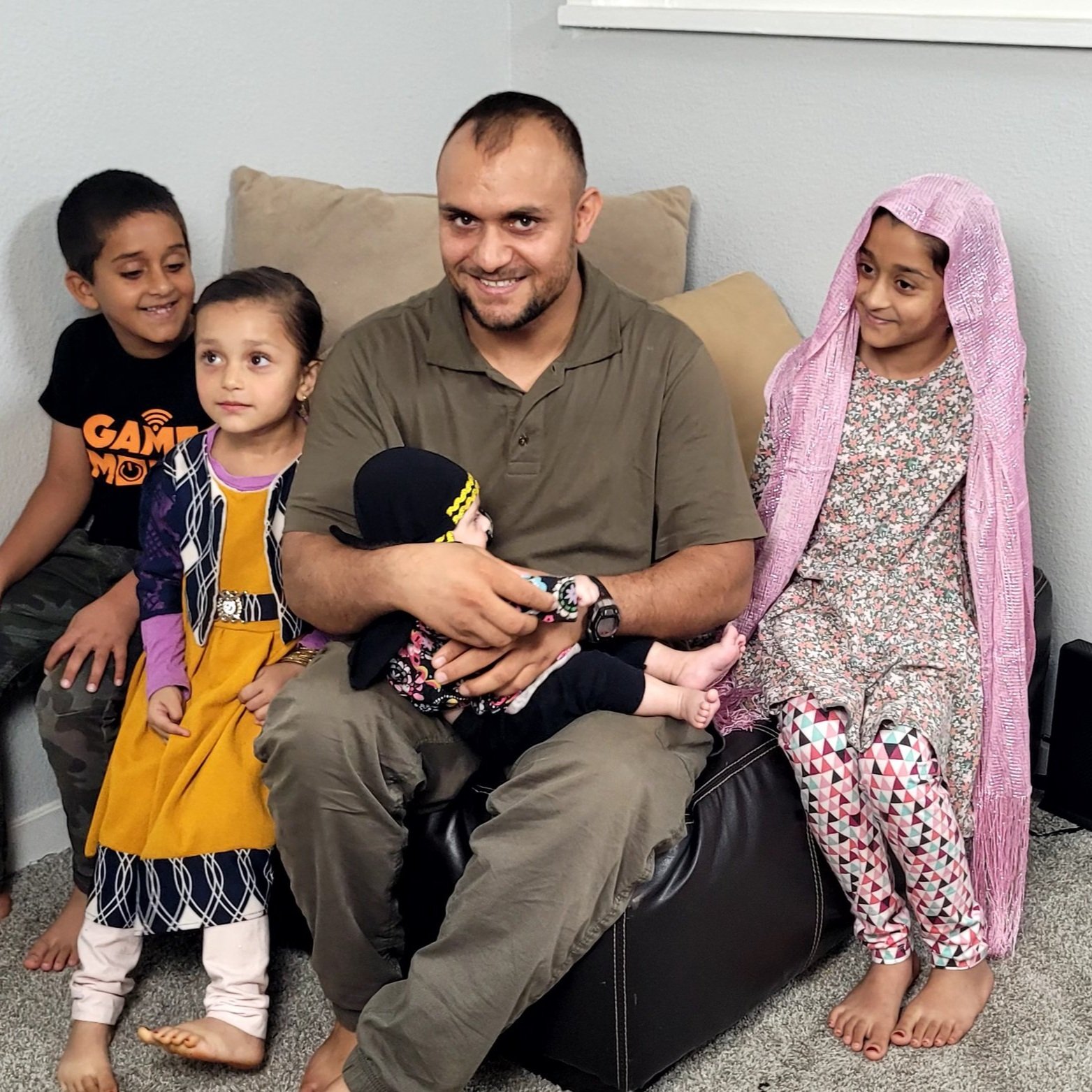Program spotlight: JFS Yana Vishnitsky Refugee Resettlement
This month, we’re excited to spotlight our Yana Vishnitsky Refugee Resettlement program. We sat down with JFS Director of Refugee Resettlement Troy Cox to learn about this remarkable team and their work throughout JFS and our communities.
Q: Tell us about your program.
TC: JFS’s current refugee response draws on our 152 years of experience providing ongoing, wrap-around support services. For newly resettled neighbors, our services include:
Offering mental health support.
Providing cultural orientation.
Securing housing (and household items).
Providing culturally appropriate food and essential items.
Conducting ongoing case management to further assist with the transition to Colorado.
Assisting with government benefits, language courses, and school enrollment.
Providing workforce development and employment support.
In 2022, JFS became a permanent Reception & Placement agency working in partnership with HIAS, the Global Jewish Organization for Refugees. In our first year, we resettled 137 refugee individuals from across the globe. In the current year, we expect to resettle 150 individuals.
From the moment our support teams greet and welcome refugees on their arrival at Denver International Airport, we work to provide all of their basic needs for their new lives in Colorado. Refugees receive 90 days of intense services after their arrival, and we work with state and local governments and community organizations to help new arrivals settle into their communities, including introducing them to their local healthcare system, enrolling them in public benefits, helping them sign up for English as a Second Language classes, enrolling children in school, and so much more. We also provide employment services because while refugees receive stipends to cover their first three months in the United States, they are required to find work quickly—and most do. Employment is the biggest step to gaining financial security. JFS works with many local employers to find job opportunities for them.
Q: What impact does your program make?
TC: First and foremost, refugee resettlement is necessary to provide safe and orderly pathways to men, women, and children fleeing political upheaval, violence, and persecution who qualify for asylum, Special Immigrant Visas, and refugee status. These individuals are legally here and can work, collect IDs, and contribute to the economy immediately after arrival.
Most refugees, when allowed, eventually return to their home country. Some stay in temporary refugee settlements, while others resettle in a third country, such as the United States. Refugees often thrive and contribute to their communities, starting careers, purchasing homes, building businesses, and gaining citizenship.
An interesting note: The U.S. Department of Health and Human Services’ (HHS) Office of the Assistant Secretary for Planning and Evaluation (ASPE) published a groundbreaking report, in 2024 monitoring refugee arrivals from 2005-2019 which highlighted the below impacts.
Q: What is the team working on now?
TC: We are constantly working on efficiency, raising money, expanding, and making sure our programs function with longevity. JFS is also regularly working on locating housing. Denver has become increasingly expensive, and housing has become less available. Affordable properties willing to rent to refugees are a vital part of our programming.
Q: What’s a fun fact about your team?
TC: JFS’s Resettlement Team is a small but strong team. We are a team of six individuals, three of whom are case workers. Our teams represent many different cultural backgrounds (some of which were refugees themselves) and speaks six different languages.
If you would like to learn more about our food and housing programs, visit jewishfamilyservice.org/resettlement.

